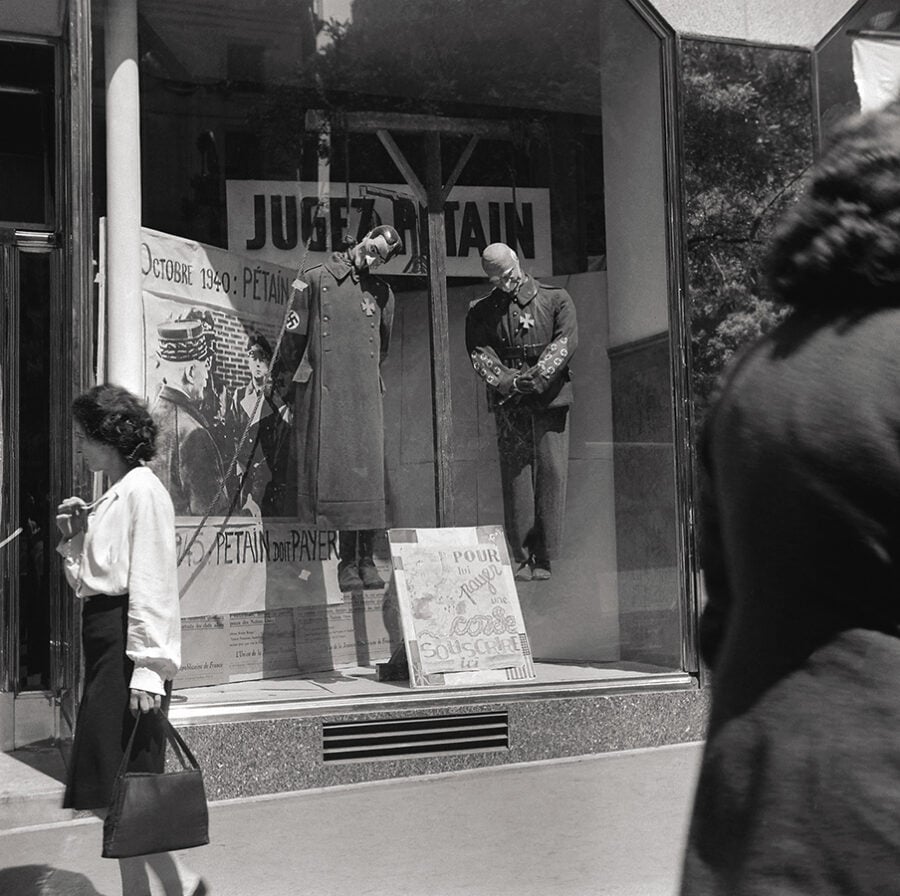
Mannequins resembling Adolf Hitler and Marshal Pétain hang in a Paris storefront, May 1945 © AFP/Getty Images
Discussed in this essay:
France on Trial: The Case of Marshal Pétain, by Julian Jackson. Belknap Press. 480 pages. $35.
In early September, France’s highest court overturned an appellate decision that had acquitted the far-right politician Éric Zemmour of “disputing crimes against humanity.” The ruling means that Zemmour will once again have to stand trial for his claims that the Vichy government, and in particular its head of state Marshal Philippe Pétain, saved the lives of French Jews during the Second World War. The ruling is perhaps the most…


